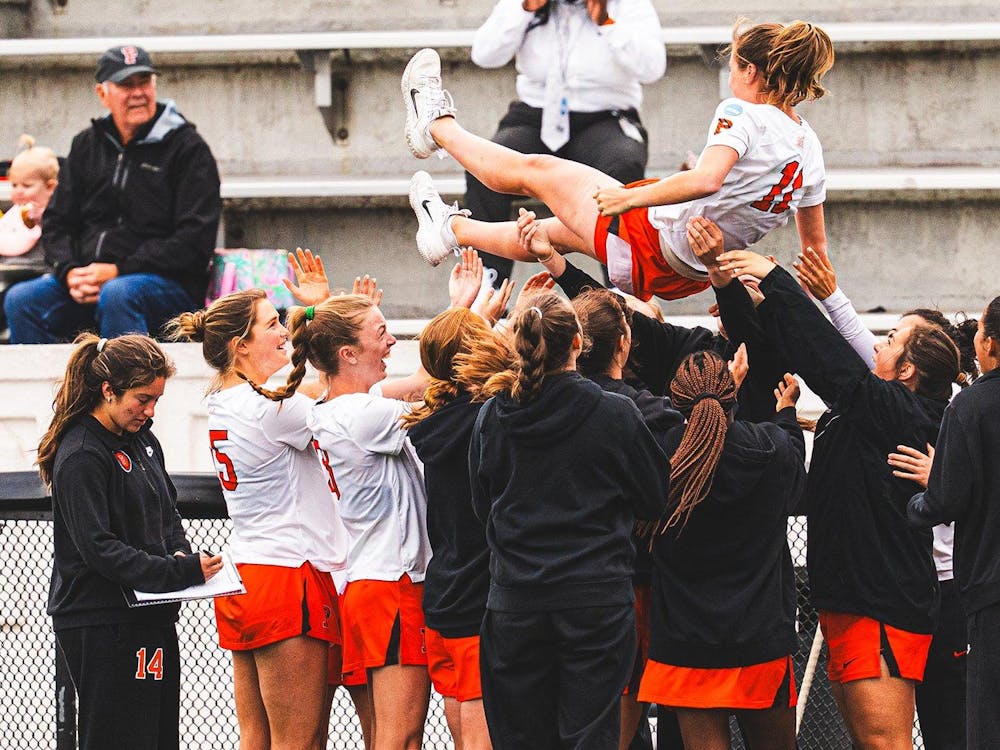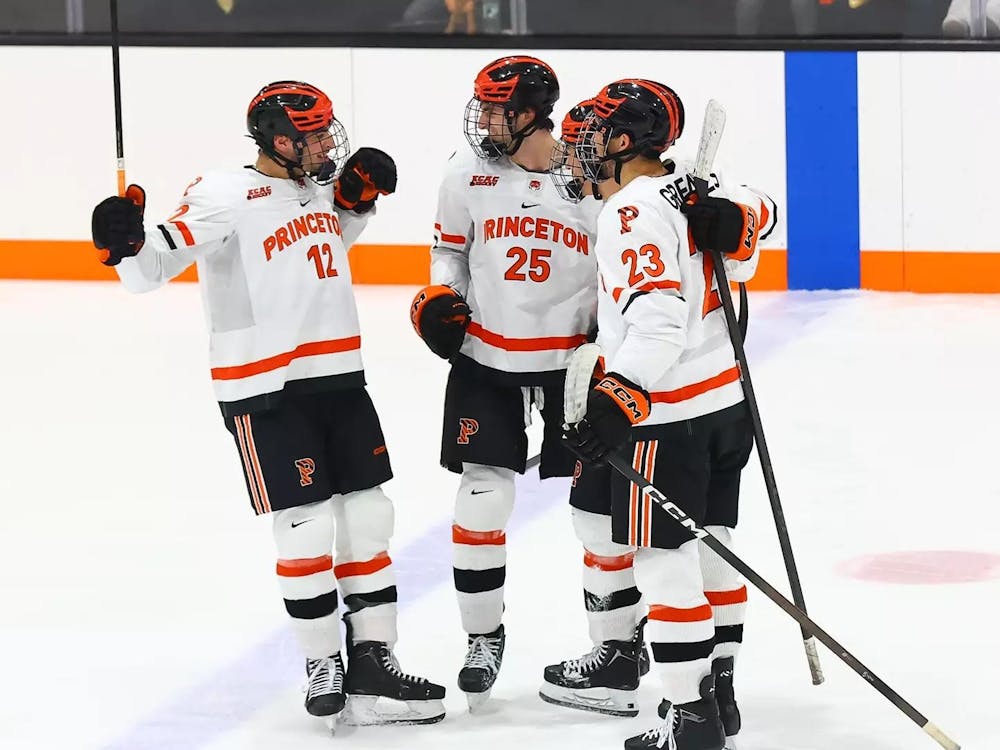Investment banking and graduate schools, not football, are typical pursuits of Princeton graduates after they walk through Fitz-Randolph gate on graduation day. NFL scouts usually do not bother to take more than a cursory look at members of Ivy League teams. And if they do happen to check a player out, it is generally so that they can dismiss any positive rumors they had heard about him and head back to recruiting in the Big 10. And if for some strange reason they do happen to become interested in an Ivy League player and sign him to a contract, that player will often get cut from the team during preseason tryouts.
This year, though, Dennis Norman '01 was different. He was scouted, drafted, and succeeded in making the final cut for the Seattle Seahawks.
The offensive tackle out of Marlton, N.J., came out of high school as a three-sport star, narrowed it down to football and throwing discus for the track team while in college (earning All-Ivy honors in both sports), and has since proven that even a man from the Ancient Eight can earn the right to work on Sundays.
But, of course, the Princeton faithful never doubted for a moment that he could succeed. After all, the 2000 Poe-Kazmeier trophy winner for the football team MVP was only the fourth Tiger in history named first-team All-Ivy in football for three consecutive years.
The journey after college football for the six-foot, four-inch, 307 pound athlete began when the NFL began to indicate it was interested.
He attended a camp in Indianapolis where his athletic fitness and strength were tested. Instead of performing like a typical Ivy Leaguer, he generally rose above the rest, producing the fastest 10-yard-dash time at his position, the second fastest 20-yard time, and was able to bench press 225 pounds 25 times –– the 10th most at his position.
After the physical tests, he became the first Princetonian drafted by the NFL since the Eagles snared Jason Garrett in 1990. Probably the biggest attribute and reason that Norman was drafted was his sheer athleticism. But, while athleticism helped him snare the 222nd draft pick, it alone did not get him on the final roster .
"[Making the team] encompasses a lot of things," Norman said. "It's foot speed, foot quickness, mobility, the strength of your punch, the ability to stay in front of people, to move laterally, the ability to pick up blitzes and stunts. It's intangibles — the ability to be nasty, to recover from a missed assignment. It's not really a statistical thing — it's intangibles."

After being drafted, Norman participated in the brutal Seahawks' camps throughout the summer, impressed the offensive coordinator, Tom Lovat, and passed through all of the remaining cuts, including the final cut on September 2.
"[The summer training camps were] different," Norman said. "They were a lot longer than college training camps. [The practices were] more during the day, so you get real tired and it wears on you. It was a lot more intense."
But Norman was prepared for the intensity. Although Princeton and the rest of the Ivy League rarely send its athletes to the NFL, Norman felt as though he received the preparation needed to succeed.
"They think that the Ivy League is a lesser level of football," Norman said. "The [scouting tryouts] were a big opportunity for me, and it was definitely a time for me to showcase that I could play at that level. I think I did fairly well.

"Overall, [playing at Princeton] was a great experience. I don't think it hurt [my chances at playing in the NFL]. I always knew what it took and that I had what it took, and the coaches definitely helped me. Being at Princeton may have hurt me a little in getting noticed, but that's not much."
Now that he has completed the senior thesis, finished his college days, and made the Seahawks cut, he has discovered that life has not gotten any easier. He has rediscovered what it is like to be a freshman.
"It was different during training camp as a rookie," Norman said. "You had to earn respect and work your way onto the team."
More than worrying about earning respect, though, the players are still bombarded with long afternoon practices and then evening meetings to study tapes to perfect their skills. But that's what they are there for, to perfect their skills and contribute to the club.
Norman, as the second man on the depth chart, is not expected to contribute a great deal immediately. He is merely expected to continue to work hard and be in a position to help the team if he should be called upon.
"[The first string left tackle], Walter Jones, is a fine, Pro-Bowl caliber, so he'll be around a while," Norman said. "I just need to continue to work on my technique and skills and continue doing what I have to do."
So, he is currently developing his skills, continuing to do what he has to do, so that he will be ready when the team needs him.







